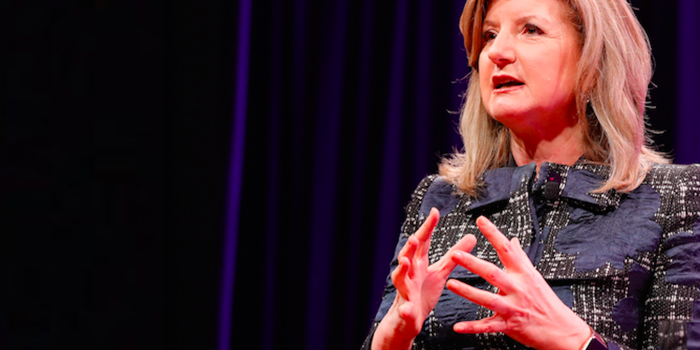Author: Cynthia Johnson / Source: Entrepreneur
Visionaries gathered at the World Government Summit in Dubai grappled with how to harness the power of technology without letting it overpower our humanity.

Opinions expressed by Entrepreneur contributors are their own.
The way we work has changed and as a result, the way we lead must, too. People have more communication tools but less time free from distraction. We are all constantly consumed by work and tasks, which results in many employees working themselves into depression and exhaustion. This has to change. It’s not healthy, it doesn’t contribute to a more effective workday and data shows that it’s bad for business.
Early this month I attended the World Government Summit in Dubai. The summit had some amazing leaders in various industries speaking and hosting workshops about happiness, mindfulness, leadership and creating the workplaces of the future. Here are 10 insights from summit speakers:
Arianna Huffington, founder and CEO of Thrive Global
“We are working in a world where to be constantly “switched on” is rewarded, where burnout equals success, where we forget to recharge ourselves but not our phones, where we take better care of our devices than ourselves, a world where we are losing sleep and our humanity — and this is clearly not working. The idea is to fundamentally change the culture we have created that glamorizes people who are all the time switched on and connected rather than those that have their priorities right and prefer to spend time with their children or themselves; and let’s face it, who knows how best to create such a world better than women.”
Will.i.am., founder of the band Black Eyed Peas and STEM education advocate
“Creating lifelong learners is critical in this century when it is predicted that 65 percent of current students will go into jobs that do not currently exist. We can overcome the issue of access through the use of smartphones. In India, almost 70 percent of students have access to a smartphone. When it comes to addressing personalization, we need to look at how each student learns. This is not possible in the classroom but can be captured on a platform, on which a student profile can be built. Finally, we need to gift students a love of learning, rather than learning through fear of exams, by developing high-quality, engaging and accessible education.”
Nisha Jagtiani, Group Director and board member of Landmark Group, exclusive partner of…
Peter Bordes Jr
Founder & Managing Partner Trajectory Ventures. Lifetime entrepreneur, CEO, Board Member, mentor, advisor and investor.
Obsessed with the infinite realm of possibility in disruptive innovation driving global digital transformation in technology, cloud-based infrastructure, artificial intelligence, data, DevOps, fintech, robotics, aerospace, blockchain and digital media and advertising.

